Homemade dog food is a hit with some pet parents, but serious concerns surround this rising trend in canine cuisine.
Unfortunately, homemade dog foods are rarely balanced, leading to dangerous nutritional deficiencies. They also don’t usually address your dog’s specific dietary or health needs, leaving him at risk.
Fortunately, there are homemade dog food supplements you can use to address these problems.
We’ll share a few of our favorites below!
Quick Picks: Best Homemade Dog Food Supplements
|
A custom-crafted multivitamin mix-in designed for use with Farmer’s Dog homemade dog food meal plans. |
A limited-ingredient, four-strain probiotic powder that offers digestive support in a pup-approved beefy flavor. |
A mixture of joint-supporting and anti-inflammatory ingredients designed to keep your pooch pain-free. |
A custom-crafted multivitamin mix-in designed for use with Farmer’s Dog homemade dog food meal plans.
A limited-ingredient, four-strain probiotic powder that offers digestive support in a pup-approved beefy flavor.
A mixture of joint-supporting and anti-inflammatory ingredients designed to keep your pooch pain-free.
You should never switch dog foods or begin a supplementation regimen without first discussing the issue with your vet or — even better — a veterinary nutritionist.
And this is especially important for owners interested in serving homemade dog foods.
This can help you avoid triggering dangerous nutritional imbalances, and ensure that your pup is getting the kind of nutritious noms he deserves. You may even find that your food doesn’t require additional supplementation.
And remember: Haphazard supplementation can cause just as many problems as nutritional deficiencies, further illustrating the importance of working closely with your vet.
The 8 Best Homemade Dog Food Supplements

Countless canine dietary supplements are on the market, but we’ve rooted through those most often needed in homemade dog diets for the best of the best. Check out our top picks.
1. Farmer’s Dog DIY Nutrient Mix
A multivitamin mix-in designed for use with Farmer’s Dog balanced homemade dog food meal plans.
About: Farmer’s Dog DIY Nutrient Mix is made specifically for dogs eating a homemade diet with its everyday blend of vitamins and minerals vital to canine health. Designed to be paired with one of the brand’s vet-approved homemade meal plans, it ensures your pup’s diet meets AAFCO standards.
Features:
- Contains human-grade ingredients sourced from FDA-regulated manufacturers
- Customized to your dog’s needs, along with his homemade meal plan
- Formulated by vets and veterinary nutritionists
- Made in the USA
Active Ingredients:
- Varies based on your dog’s needs
Ingredients List
Tricalcium Phosphate, Potassium Chloride, Choline Bitartrate...,
Sea Salt, Taurine, Zinc Amino Acid Chelate, Ferrous Amino Acid Chelate, Vitamin E Supplement, Potassium Iodide, Copper Amino Acid Chelate, Vitamin B12 Supplement, Manganese Amino Acid Chelate, Thiamine Mononitrate (Vitamin B1), Riboflavin Supplement (Vitamin B2), Sodium Selenite, Vitamin D3 Supplement, Pyridoxine Hydrochloride (Vitamin B-6), Folic Acid
Pros
- Excellent choice for pet parents wanting a professionally formulated supplement
- Catered to your dog’s specific needs
- Very affordable for such a customized option
Cons
- Must sign up for a DIY dog food plan
- Only 3 proteins to choose from among meal plans
2. Honest Paws Mobility
A bacon-flavored powder made with a blend of joint-supporting active ingredients.
About: Honest Paws Mobility is a powder-form powerhouse, with each serving containing joint-friendly glucosamine and chondroitin along with inflammation fighters like fish oil and MSM. Like all Honest Paws’ products, this supplement is non-GMO and organic.
Features:
- Third-party tested for safety
- Savory bacon popcorn flavor entices pups
- Suitable for dogs of all sizes
- Made in the USA with globally-sourced ingredients
Active Ingredients (Per 2.5 milligram scoop):
- 600 milligrams glucosamine HCI (shellfish)
- 300 milligrams green-lipped mussel powder
- 250 milligrams fish oil
- 200 milligrams chondroitin sulfate (bovine)
- 200 milligrams MSM
- 50 milligrams Vitamin C
- 10 milligrams Boswellia serrata
- 5 milligrams manganese gluconate
- 0.5 milligrams hyaluronic acid
Ingredients List
Glucosamine HCI, Green-lipped mussel powder, Fish oil...,
Chondroitin sulfate, MSM, Vitamin C, Boswellia serrata, Manganese gluconate, Hyaluronic acid, Natural flavors
Pros
- Features a mix of joint-supporting and inflammation-fighting ingredients
- Limited ingredient list ideal for dogs with sensitive systems
- Mixes easily into homemade mutt meals
- Comes with a 30-day money-back guarantee
Cons
- Can be messy to serve
- More flavor options would be ideal
3. Native Pet Probiotic
A probiotic-packed powder made with a balanced blend of four different bacterial strains to support gut health.
About: Native Pet Probiotic features four strains of probiotics and fiber-rich prebiotics for balanced digestive support. Its beefy taste makes it a great topper for homemade meals, while its limited ingredient list sticks to the good stuff and no surprises.
Features:
- Formulated by a board-certified veterinary nutritionist
- Powder-based recipe mixes easily into food
- Doesn’t contain any soy, dairy, gluten, or artificial ingredients
- Made in the USA with human-grade ingredients
Active Ingredients (Per ½ Teaspoon Serving):
- 6 billion CFU from a mix of Bacillus coagulans, Enterococcus faecium, Bifidobacterium animalis, and Bifidobacterium bifidum
- 315 milligrams inulin prebiotic powder
Ingredients List
Dehydrated Beef Broth (Dehydrated), Organic Pumpkin Seed...,
Organic Inulin (From Jerusalem Artichoke), Dried Bacillus coagulans Fermentation Product, Dried Enterococcus faecium Fermentation Product, Dried Bifidobacterium animalis Fermentation Product, Dried Bifidobacterium bifidum Fermentation Product
Pros
- Excellent mix of prebiotics and probiotics for well-rounded digestive support
- Limited ingredient list ideal for dogs with sensitivities
- Affordably priced
Cons
- Some dogs experienced tummy upset
- Can be messy to feed
4. Purina Fortiflora Canine Nutritional Supplement Box
A savory, patented probiotic supplement containing a single bacterial strain for targeted digestive support.
About: Boost your best bud’s belly balance with Purina Fortiflora Canine Nutritional Supplement Box, a supplement made with a single-strain probiotic. Ideal for aiding in digestive health for homemade diets, this supplement provides a targeted approach to gut health and has a meaty flavor dogs enjoy.
Features:
- Designed by veterinarians, nutritionists, and researchers
- Offered in chewables and powder packets
- Suitable for adults and puppies
- Made in the USA
Active Ingredients (Per Serving):
- 1 x 108 CFU/g Enterococcus faecium
Ingredients List
Animal Digest, Enterococcus faecium, L-Ascorbyl-2-Polyphosphate...,
Brewers Dried Yeast, Vitamin E Supplement, Zinc Proteinate, Beta-Carotene, Salt, Manganese Proteinate, Ferrous Sulfate, Copper Proteinate, Calcium Iodate, Sodium Selenite
Pros
- Formulated by veterinarians and nutritionists
- Comes in a powder and chewable form
- Taste gets a paw’s up from most doggy diners
- Single-strain probiotics are preferable in some circumstances
Cons
- On the pricey side
- Powder version can be messy
Some probiotics — such as the Native Pet product discussed earlier — contain a variety of different bacterial strains, while others — such as Purina’s offering — are comprised of only a single type of bacteria.
And this begs the question: Which one is best for YOUR pooch?
Well, we hate to sound like a broken record, but once again, it is important to discuss the issue with your vet. He or she can guide you in making this decision and achieving the best possible results for your dog.
5. Zesty Paws Pure Wild Alaskan Salmon Oil
A premium, liquid-style supplement made from pure Alaskan salmon oil and full of inflammation-fighting EPA and DHA.
About: Zesty Paws Pure Wild Alaskan Salmon Oil gets right to the point with an omega-rich formula of real salmon oil containing zero artificial flavors, preservatives, or colors. The fishy flavor is a hit with most pups, including those who need more enticement to eat.
Features:
- Liquid-form supplement easy to add to any doggy diet (including homemade blends!)
- Dog and cat-friendly recipe
- Received a quality seal from the National Animal Supplement Council (NASC)
- Made in the USA with US- and globally-sourced ingredients
Active Ingredients (Per teaspoon):
- 425 milligrams DHA
- 340 milligrams EPA
Ingredients List
Salmon oil, Mixed tocopherols...,
That’s it!
Pros
- Rich source of omega-3s
- Limited ingredient list
- Ideal for aging canines or those with skin concerns
Cons
- Picky pups may refuse to give it a try
- On the pricier side
6. Golden Paw 10 In 1 Cat & Dog Multivitamin
A potent blend of several dog-friendly vitamins and minerals that you apply to Fido's food via a convenient dropper.
About: Golden Paw 10 In 1 Cat & Dog Multivitamin offers a mix of core vitamins and minerals for canines. Add it right to your dog’s homemade diet with its convenient dropper.
Features:
- Each 2-ounce bottle contains a whopping 1200 drops
- Sugar-free, gluten-free, non-GMO recipe
- Suitable for all sizes and ages, per the manufacturer
- Made in the USA with US-sourced ingredients
Active Ingredients (Per milliliter):
- 20 milligrams Vitamin C
- 100 IU Vitamin D
- 1 milligrams Vitamin B1
- 1 milligrams Vitamin B2
- 1 milligrams Vitamin B3
- 1 milligrams Vitamin B6
- 200 micrograms Folic Acid
- 2 micrograms Vitamin B12
- Glucosamine
- MSM
Ingredients:
Ingredients List
Water, vegetable-derived glycerin, Vitamin C, Vitamin D, Vitamin B1...,
Vitamin B2, Vitamin B3, Vitamin B6, Folic Acid, Vitamin B12, Glucosamine, MSM
Pros
- Great mix of everyday vitamins and minerals for canine wellness
- Dropper makes dosing convenient and mess-free
- Affordably priced and lasts a long time
Cons
- Some dogs dislike the taste
- A few pet parents reported canine stomach upset
7. Populum Zen Pets
An American-made CBD oil that's made from US-grown hemp and available in two different concentrations.
About: Populum Zen Pets features human-grade, pet-friendly CBD oil for calming canines and easing joint discomfort, plus it doses effortlessly with its included dropper. The manufacturer takes safety seriously, as every batch is tested for toxins and proper potency in addition to regular in-house and third-party quality testing.
Features:
- Offered in 100-milligram and 250-milligram concentrations
- Safe for dogs of all sizes
- Can be a one-time buy or subscription-based for savings
- Made in the USA with US-grown hemp
Active Ingredients (Per serving of 100-mg concentration):
- 3.3 milligrams hemp oil
Ingredients List
Hemp oil, concentrated hemp extract...,
That’s it!
Pros
- Dropper-style application makes adding to homemade diets a breeze
- Top-notch company transparency (see actual lab reports on their site!)
- Comes with a 30-day money-back guarantee
Cons
- Finicky floofs may refuse to give it a try (though it’s easy to hide in most food)
- A little on the pricey side
8. UPCO Bone Meal
A calcium-rich supplement that's made in powder form and consists of only one ingredient: real pork bone meal.
About: UPCO Bone Meal skips mile-long ingredient lists with its single-source pork bone meal recipe. This powder-form bone meal is easy to add to homemade diets, just mix it in or sprinkle it on as a delicious meal topper.
Features:
- Bone meal naturally contains calcium and phosphorous for maximum absorption
- Ideal for pregnant dogs and those needing special calcium supplementation
- Safe for use in dogs and cats
- Made in the USA with US-sourced ingredients
Active Ingredients (Per teaspoon):
- 720 milligrams calcium
Ingredients List
Porcine bone meal...,
That’s it!
Pros
- Mixes great into most dog foods (homemade and otherwise)
- Single-ingredient recipe ideal for dogs with food restrictions
- Most pups don’t mind the taste
Cons
- Large, non-sealable bag can be a pain to store
- Not an option for dogs with pork sensitivities
Different Kinds of Homemade Dog Food Supplements
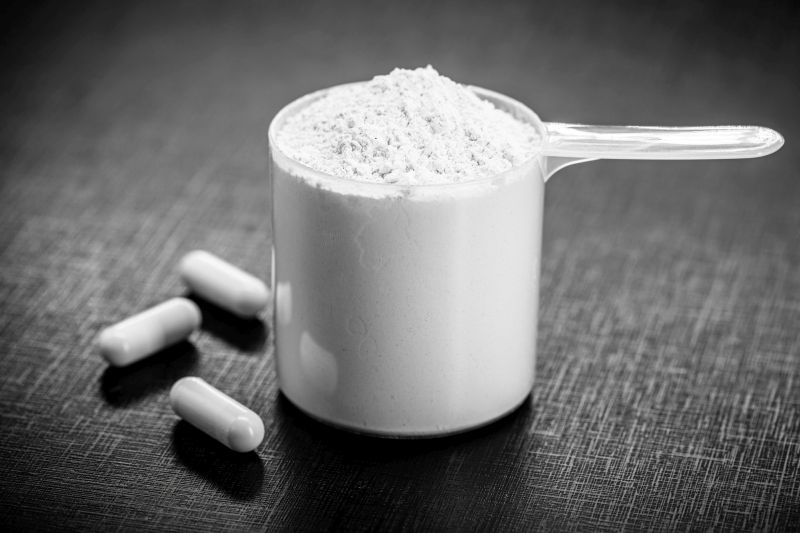
Various canine supplements are used in homemade diets to address everyday health and specific areas of concern. Not every dog needs every supplement, so always check with your vet to make sure a product is suited (and safe!) for your sniffer.
This is critical, as some supplements can be dangerous for certain canine health conditions or interfere with your dog’s existing medications.
Probiotics

Probiotics contain the “good” bacteria found in a dog’s gut that promote healthy digestion. They can help ease common canine tummy issues like diarrhea, excessive gas, and poor digestion. They’re also often administered after illness or antibiotic treatment to restore balance in the gut biome.
Probiotics may contain a single strain of bacteria for a targeted approach or multiple strains for a balanced blast of belly support. Which works best depends on your dog’s needs.
Joint Supplements

Joint supplements are designed to protect and potentially rebuild the cartilage found between bones at your dog’s joints. Some also include anti-inflammatory ingredients that may ease joint pain. These supplements are ideal for dogs with osteoarthritis and other joint issues or four-footers needing joint recovery after a hard day’s work or play, depending on the formula.
Several active ingredients are used in joint supplements, including chondroitin for joint protection, glucosamine for rebuilding cartilage, and methylsulfonylmethane (MSM) for reducing inflammation. Others include less common ingredients that have yet to be proven effective in many studies, include turmeric, spirulina, and Boswellia.
Omega-3 Supplements
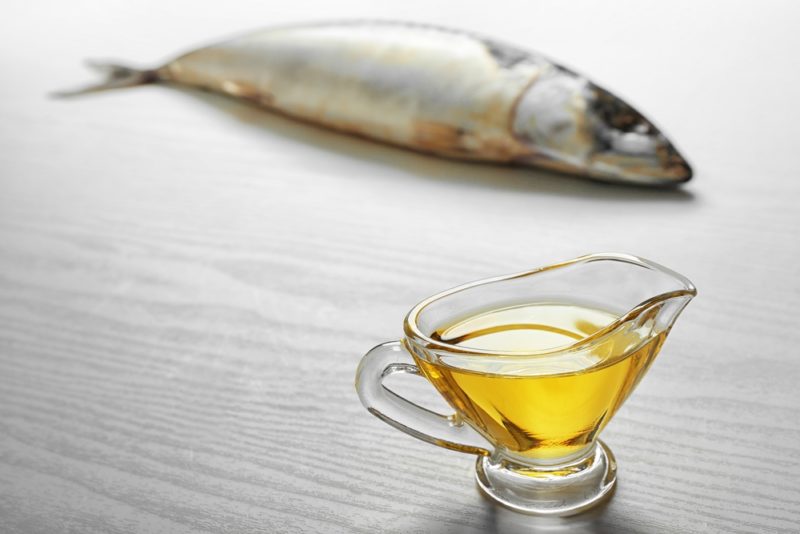
Omega-3 supplements are derived from fish, flaxseed, or chia seeds and help promote skin and coat health in canines. This can ease dry, itchy skin or dull coat appearance.
Omega-3 fatty acids may also reduce inflammation, benefiting dogs with arthritis or other painful joint conditions. These nutrients are critical for brain and eye development in puppies too.
Omega-3 fatty acids commonly used for dogs include fish-derived eicosapentaenoic acid (EPA) and docosahexaenoic acid (DHA). These are generally preferred over plant-based options.
Mutt Multivitamins
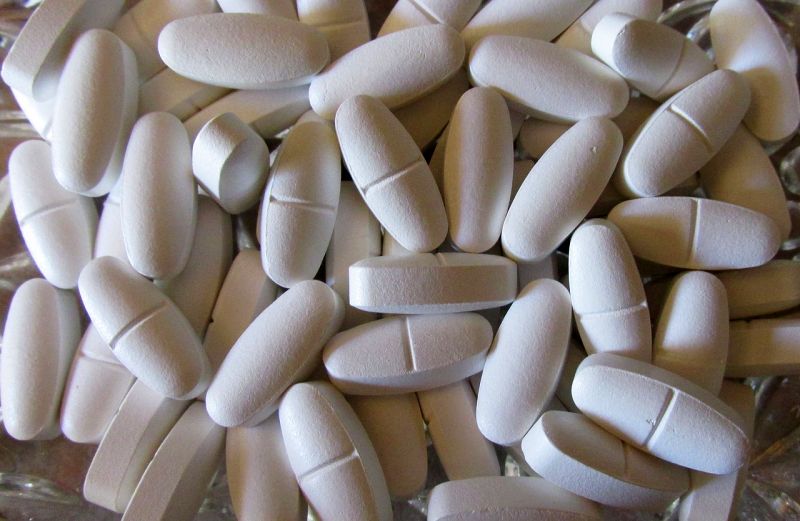
Multivitamins for dogs provide a mix of key vitamins and minerals for everyday canine health, like vitamin B1, folic acid, and vitamin C. These products generally aren’t necessary for floofs eating commercial dog foods, as wet foods and kibbles are usually fortified with essential vitamins for canines. But for homemade diets, they may be recommended by your vet to ensure a balanced daily offering of must-have mutt vitamins and minerals.
Vitamins and minerals are essential for many aspects of doggy wellness, from antioxidants for immune support to choline for liver and brain health. Canine multivitamins offer a balanced blend, ensuring proper dosage.
Calcium

Calcium is a critical nutrient for canine bone health and is often given to pregnant or lactating female dogs. It’s also sometimes used to address specific health concerns like rickets or kidney failure. Most off-the-shelf kibbles and dog foods contain the appropriate nutrients to meet AAFCO standards, so calcium is never a concern, but it can be deficient in homemade dog food diets.
Never give your dog calcium supplements without your vet’s instruction. Too much calcium is just as dangerous as not enough calcium, leading to bone deformities and severe illness.
CBD

Cannabidiol, or CBD, is an active ingredient in marijuana plants that may have anti-inflammatory or sedating effects in dogs. While not a traditional supplement you’d think of, many owners add CBD oil to their pup’s routine in an attempt to aid with health concerns like arthritis, muscle spasms, and seizures. Others use the supplement to help with canine anxiety or insomnia, particularly with older four-footers.
Common Reasons Owners Feed Homemade Dog Foods
While kibble remains the king of the dog food market, some owners have opted for the homemade dog food route, with more jumping aboard the train as the idea trends on social media. But why are so many people trying homemade dog diets?
They want to pamper a pup with fresh, homemade food.

Some pawrents just want to give their dog the best of the best, made right at home.
A desire to serve your dog freshly made, healthy food is understandable, but opting for fresh dog food formulated by a vet or animal nutritionist is the best option to ensure your pooch is eating a balanced diet that meets his specific needs.
They distrust the commercial dog food industry.
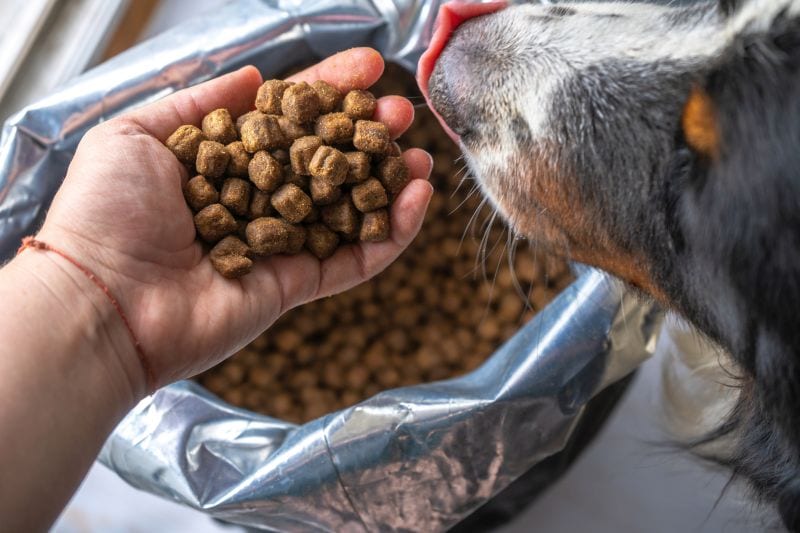
Some pet parents dislike large corporations, seeing them as nothing but money-hungry machines interested in cutting corners at the expense of dogs.
Sadly, these accusations are usually off the mark, as dog lovers are at the core of most dog food companies. Not only are the recipes formulated by vets and animal nutritionists to meet or exceed canine dietary needs, but the companies often donate to dog charities.
They want to control what goes into a pet’s food.
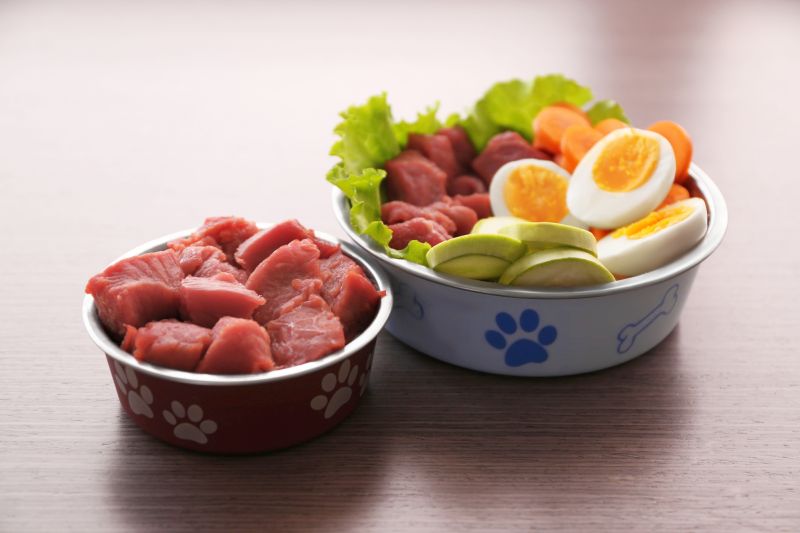
Having complete knowledge of what goes into your dog’s food is appealing, especially if your dog suffers from allergies or severe food intolerances.
Homemade dog food also gives you a firsthand look at the quality of the ingredients and traceability, which may be lacking in commercial dog food.
That said, there are several top-notch commercial contenders available that check many of these boxes.
This includes non-GMO dog food, limited-ingredient dog food, and even those using human-grade ingredients with complete traceability available to owners.
They plan to address specific health needs.

Owners of pups with sensitive systems or health issues may feel a homemade diet is best to cater to these concerns. While intentions are in the right place, this isn’t always the best option, particularly if you haven’t discussed your plans with your vet or had your at-home meal plan approved by a board-certified professional as meeting your pup’s dietary and medical needs.
Countless diets are available for dogs with unique nutrition needs, such as low-sodium dog foods, high-protein dog food, and more. These are carefully formulated by veterinarians or animal nutritionists familiar with such conditions to ensure balance and safety.
They struggle with pup pickiness.

Some dogs have notoriously selective palates, making finding food your floof will eat challenging. Concocting a homemade blend can be tempting, but a better option is to switch to tasty dog food for picky eaters or add a scrumptious meal topper to your dog’s current food.
These aren’t just more convenient, but they’re also usually more affordable and are formulated to meet canine nutrient needs, keeping him safe and satisfied with his food’s flavor.
They have concerns about recalls and dog food safety.

Food recalls have left some pet owners leery of commercial brands. While these fears are understandable, it’s important to note how difficult it can be to properly balance the nutrients in a homemade dog diet.
It’s also noteworthy that the human ingredients used to make your dog’s food are also often recalled, particularly proteins. This can be a nightmare of ingredients to keep track of if you’re serving a properly balanced diet.
None of this information is to invalidate anyone’s choice in dog food, but rather to highlight a homemade dog food diet’s potential risks so you can make an informed decision with your vet. Our main goal is always the health and happiness of dogs.
The Pros and Cons of Feeding Homemade Dog Foods
As with any dog food, a homemade doggy diet has its share of pros and cons to consider before making the switch for your pooch. This includes things you must discuss with your vet to ensure your dog’s health and wellness.
The Pros of Homemade Dog Foods

There’s no denying that homemade dog food offers some definite perks over off-the-shelf options.
Feeding your dog a homemade diet has several advantages:
- Taste: Homemade dog food is a treat to most dogs as it’s similar to “people food” in appearance and texture since home cooking is a gentler process overall than kibble. This increased palatability makes it ideal for picky pups.
- Ability to address specific issues: Homemade dog foods are customizable, allowing you to work with your vet or veterinary nutritionist to formulate a meal plan that works for your dog’s unique health and dietary needs, such as a kidney-friendly diet or high-protein plan.
- Total control of ingredients: Since you’re sourcing ingredients yourself with a homemade dog food diet, you have direct knowledge of the quality and type of ingredients used. This helps ensure your dog is only getting the best and freshest foods.
- Control of the process: Cross-contamination is a real concern if your dog has severe food allergies, and unfortunately, not every off-the-shelf dog food can guarantee their product won’t come into contact with triggers – especially if it’s something common in canine food. You also have direct control of food safety.
The Cons of Homemade Dog Food

While feeding homemade dog food has its benefits, it also has drawbacks that must be considered, ranging from minor inconveniences to serious health concerns. These concerns make it a no-go for many pet parents and vets alike.
The disadvantages of feeding your dog a homemade diet are:
- Nutritional deficiencies: Sadly, homemade dog diets often lack core nutrients that can affect everything from your canine’s coat to his growth. This is a significant concern for dogs with special dietary needs, like large-breed puppies.
- Nutritional excesses: Dogs can receive too much of a good thing with vitamins and minerals, leading to anything from stomach upset to severe illness, depending on the nutrient overload. This can be just as dangerous as a deficiency!
- Cost: As we all know, food prices are ticking higher, making sourcing ingredients for a homemade diet harder on your wallet than buying premade options. You also usually have to supplement with other products to ensure nutritional balance, further upping the overall cost.
- Labor: A homemade diet is a literal labor of love, as you’ll need to track down ingredients, cook them, clean up, then portion out the required amount per meal. With a large pooch or multi-dog family, you’ll need to do a lot of cooking, cleaning, and shopping. The dishes alone will prove too daunting for many owners.
- Storage: Homemade dog food and its ingredients require room in your refrigerator, freezer, and pantry, which can be a serious issue in any family, but especially so in smaller living spaces.
- Food safety: Foodborne illness and spoilage are major concerns with homemade dog food, along with keeping track of recalls on every ingredient. You also need to ensure you’re only using dog-safe ingredients. You must also label every batch with the cooking date and ensure it’s properly handled and stored during all steps of cooking to prevent making your pup sick.
Speak with your vet before switching your pup to a homemade diet to make sure it’s the right fit for his needs. It’s also important to have your dog’s homemade food plan continually monitored by your vet, as dietary needs change as your fur kiddo matures.
Supplements can make balancing your dog’s homemade diet easier but always consult with your vet to ensure your pup’s getting the nutrients required for his age, breed, and unique health needs.
Have you tried any of the canine supplements on our list? Have another you and your floof go gaga over? Share with us in the comments. We’d love to hear!

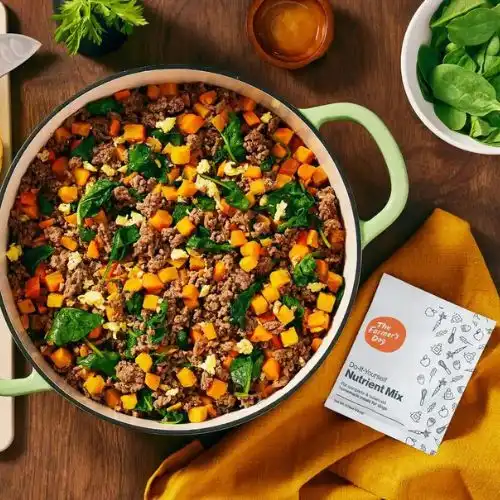
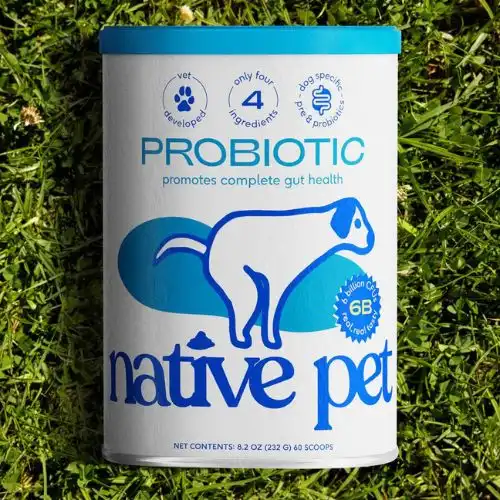
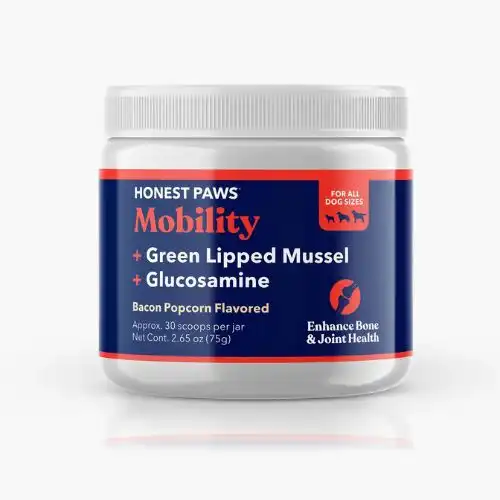
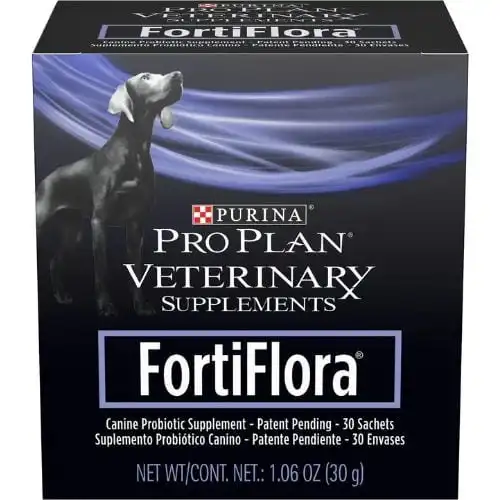
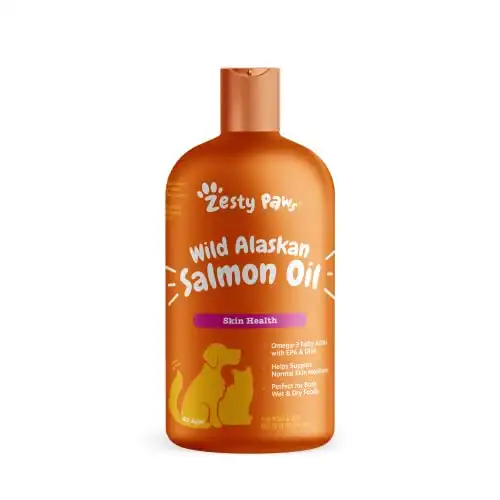
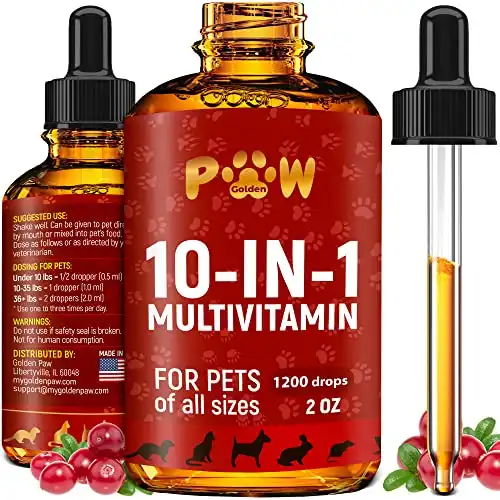

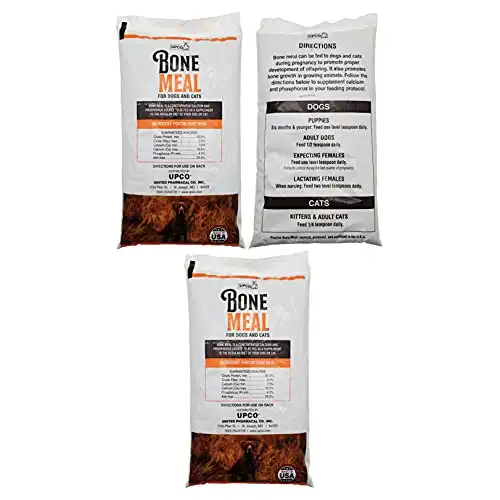

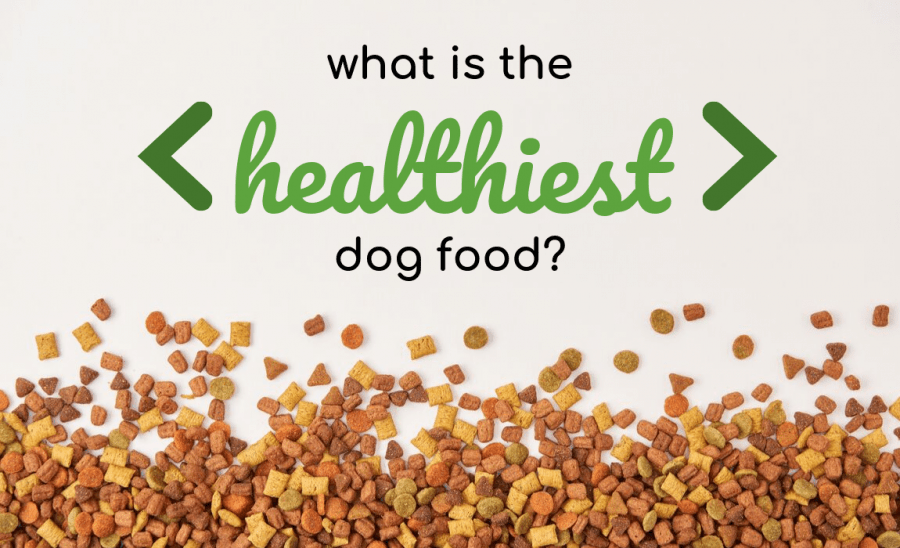






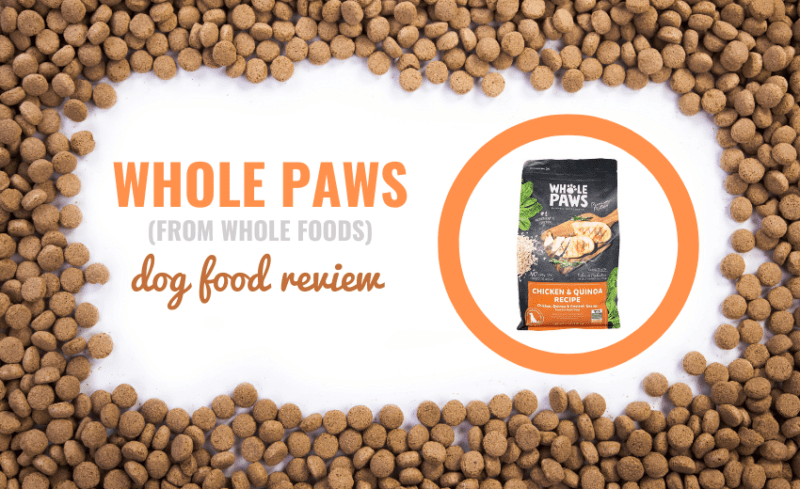

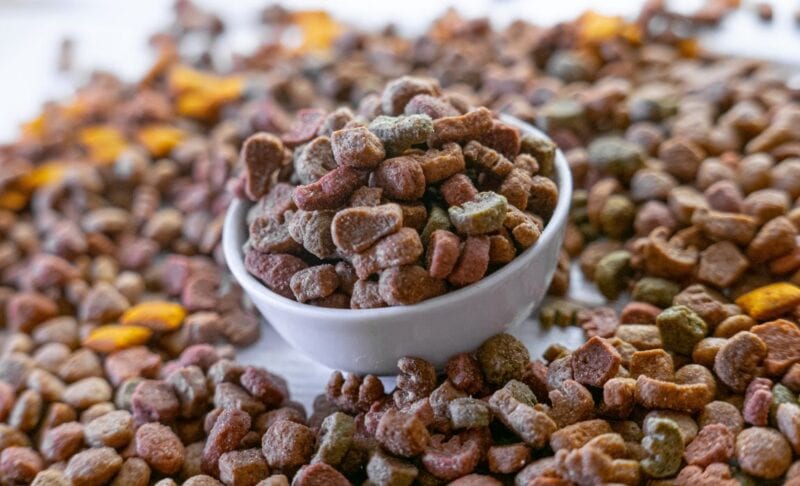

Leave a Comment